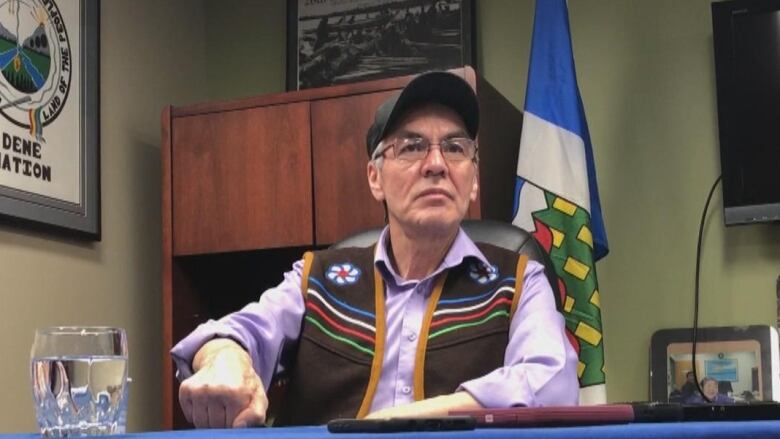Dene Nation survey suggests a fifth of its members could have severe complications from COVID-19
Survey identified 3,200 people that could need extra medical support

A survey conducted byDene Nation suggests that more than 20 per cent of its members are at a high risk of having a severe case of COVID-19, should they become infected.
The Dene Nation sent a survey to its 27 communities to better understand each community's needs and plans forCOVID-19. All communities were contacted by both phone and email, with 20 of them responding before the deadline.Yakeleya presented the survey results via teleconference Thursday.
The survey suggests at least 3,200 of the 15,000 Dene Nation members in the territory are at a high risk of serious complications fromCOVID-19, and would likely need additional medical assistance.
An overwhelming majority of the communities said they need additional medical support during the COVID-19 pandemic.
The survey identified people with diabetes, pre-existing heart conditions and pregnant women as some examples of the most vulnerable.
Dene National Chief Norman Yakeleya said communities aren't prepared to handle potential fallout from the novel coronavirus.
There are serious gaps in planning, preparation ... should the coronavirus take hold.- Norman Yakeleya, Dene National Chief
"There are serious gaps in planning, preparation ... should the coronavirus take hold," he said. "Everyone is trying really hard, but we're not ready."
All survey respondents said they needed supplies like gloves, masks and hand sanitizer.
Yakeleyaraised questions about the transportation of sick residents to regional centres.
He said the winter roads are now closing, leaving some communities with fly-in options only. Other communities have identified volunteers that are able to bring patients to regional health centres by using the highway system.
"There are some issues that ... [have] to be looked at at the community level with the Department of Health ... for some of these people that need to get to larger centres," he said.
Yakeleya urges people to go out on the land
Yakeleya said he has been in communication with the territorial government about getting emergency supplies out to the communities.
He urged peopleto go out on the land if they can otherwise stay home.
On Thursday, the federal government allocated $6 million to address the immediate needs ofFirst Nations in the Northwest Territories. The money is part of the $305-million Indigenous Community Support Fund promised last week by the federal government.
In a press release, the government said this money will "flow directly" to Indigenous communities across the country.
The CBC has sent a request to the territorial government to find out more about how the money will be spent and distributed.












_(720p).jpg)


 OFFICIAL HD MUSIC VIDEO.jpg)
.jpg)



























































































